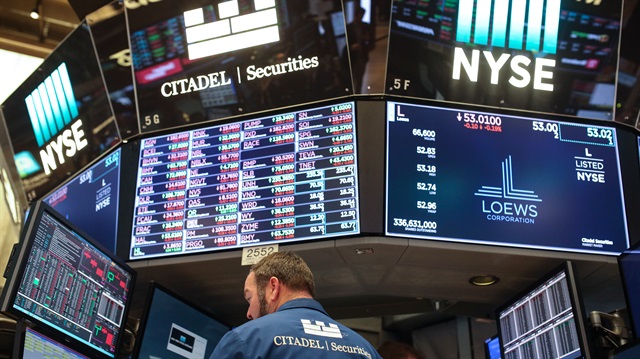
China's commerce ministry called the U.S. actions "completely unacceptable", adding that Beijing will have to respond to the latest moves by Washington.
U.S. stock index futures dropped sharply on Wednesday after the United States threatened tariffs on an additional $200 billion worth of Chinese goods, dampening hopes of a compromise on trade.
China's commerce ministry called the U.S. actions "completely unacceptable", adding that Beijing will have to respond to the latest moves by Washington.
Global stocks were under pressure overnight, with Chinese markets taking the biggest hit. The Shanghai Composite index dropped 1.8 percent, while China's blue-chip CSI300 index declined 1.7 percent.
U.S. officials on Tuesday issued a list of thousands of Chinese imports that the Trump administration wants to target with new tariffs, including hundreds of food products, as well as tobacco, chemicals, coal, steel and aluminum.
There is a two-month period of public comment on the latest proposed list before the tariffs get imposed. President Donald Trump has said he may ultimately target more than $500 billion worth of Chinese goods - roughly the total amount of U.S. imports from China last year.
Among premarket decliners, Boeing and Caterpillar fell around 1.5 percent each and U.S. Steel 2 percent.
Intel, Broadcom, Micron Technology, AMD and Nvidia were down between 1.3 percent and 3.7 percent.
Industrial and metal companies, as well as chipmakers have been the worst hit since Trump first threatened tariffs in early March as they are largely reliant on China for businesses.
At 7:09 a.m. ET, Dow e-minis were down 198 points, or 0.79 percent. S&P 500 e-minis were down 18.25 points, or 0.65 percent and Nasdaq 100 e-minis were down 55.25 points, or 0.76 percent.
Facebook, Amazon, Apple, Netflix and Alphabet were all down about 1 percent.
U.S.-listed shares of Chinese companies also tumbled, with e-commerce giant Alibaba falling 1.7 percent, and JD.com and Baidu down 1.8 percent each.
However, TripAdvisor's shares rose 1.9 percent after Barclays upgraded the stock to "overweight" rating.
Hello, the comments you share on our site are a valuable resource for other users. Please respect other users and different opinions. Do not use rude, offensive, derogatory, or discriminatory language.
The floor is all yours.











